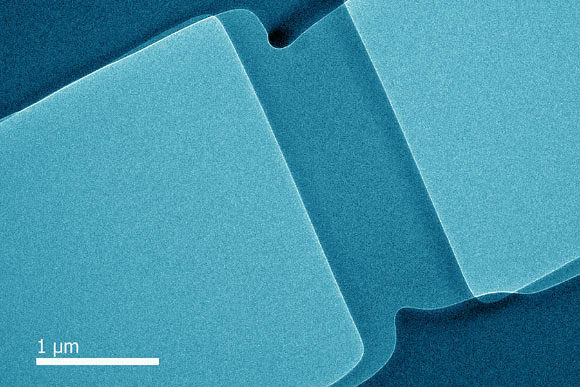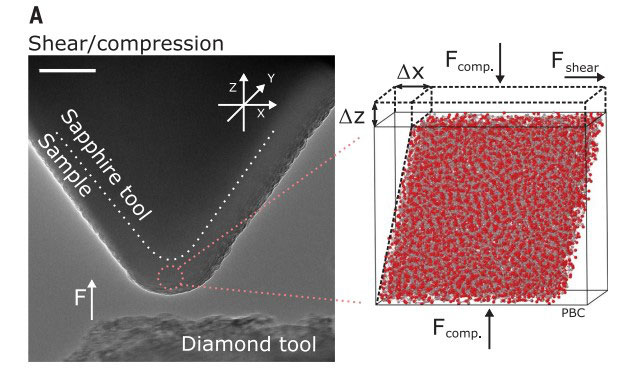Scientists create flexible glass that can only be bent, not broken
A new glass material, developed by researcher Erkka Frankberg and colleagues at Tampere University of Finland, now seems to have reached a level of ductility similar to metal at room temperature.
This means that the glass cannot be broken , it can only be bent like you bend an aluminum rod. " Ordinary glass is very brittle and fragile, " said Dr. Frankberg. If you put a sufficiently large pressure on the glass surface, they will definitely break.
" In our research, we have discovered a way to produce flexible glass. In other words, our glass is stronger and tougher than ordinary glass."

Scientists create flexible glass that can only be bent, not broken.
Dr. Frankberg's research was supported by many co-authors from Finland, France, Italy, Austria, Norway and the United States. In it, they used a very difficult technique called laser pulse deposition to convert alumina material (Al 2 O 3 ) into a glass-like state.
"It was a huge challenge to convert aluminum oxide into a glass , " said Dr. Frankberg.
Traditional glass production processes cannot be applied to aluminum oxide because it easily converts into crystal form. The solution is to cool the material very quickly from high temperatures, preventing the crystallization from happening.
It must be recalled that making glass with ductility is a very difficult job. Dr. Frankberg's processes and processes will have to be further refined and developed to be able to scale on industrial and mass production, meaning their prices will drop.
"Both aluminum and oxygen have abundant reserves on Earth, but our goal is to come up with a unique manufacturing process, to create the glass with the properties we desire. " explains Dr. Frankberg.
" The glass produced also needs to be pure and perfect enough, which presents an even greater challenge."
For glass to be flexible, the prerequisite is that it must be extremely pure and perfect. The presence of any defect, such as a mere crack, bubble or foreign matter, can cause them to break.
"In our glass, the atoms can move from one position to another before the glass is crushed so hard that it breaks. While other common glass, the force will cause they break before the atoms begin to move. That's why glass is often prone to breaking, "said Dr. Frankberg.

The team created a glass film and tested it under mechanical stress.
In the experiment, the team created a thin glass film and pressed it under mechanical stress. The results showed that the film showed a plastic-like property, but it was still glass.
" We have stretched and pressed our material samples ." Dr. Frankberg said. " By carrying out combined compression and shear tests, we were able to demonstrate that this material is also capable of controlling shear forces."
" However, ductile glass is just the beginning. Next, we will study to find out why other types of glass have similar properties, but some of them are still very fragile ," said Dr. Frankberg adds.
New research on flexible glass has been published in Science.
- The process of molding glass
- Can glass be recycled? How to recycle glass?
- Flexible memory opens the war on the bent phone
- Very thin glass
- The new method increases the durability of glass
- How are the strengths produced?
- Smart Window
- 'Broken Mirror Heals' - Groundbreaking discovery by Japanese scientist
- Researchers have created a battery that can bend and bend
- Scientists happen to create completely new types of glass
- Scientists Develop Flexible Camera
- Flexible LCD display, not broken
- Invisibility thanks to silver-coated molecules
- Successful 3D printing of glass, revolution of consumer goods production
 The US company is about to build a supersonic passenger plane of 6,000km / h
The US company is about to build a supersonic passenger plane of 6,000km / h Japan develops avatar robot as in fiction film
Japan develops avatar robot as in fiction film Australia tested the world's first mango picking robot
Australia tested the world's first mango picking robot America develops technology to separate water from animal waste
America develops technology to separate water from animal waste